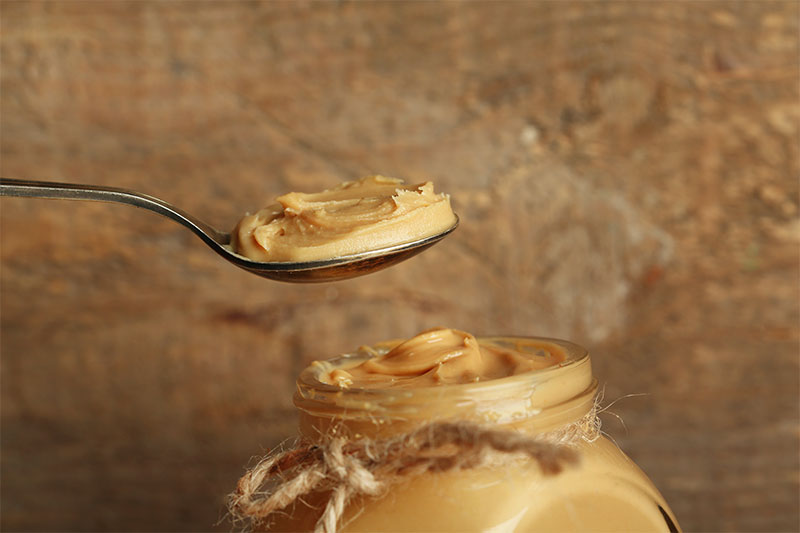
Let’s just start by saying there are two types of peanut butter, the all-natural kind, made of mashed peanuts, and the commercial stuff loaded with sugar and additives. If you are to eat peanut butter consistently, get the right kind.
Now, when we say peanut butter, we mean all types of nut butters. Almond butter, cashew butter or pecan butter are as healthy and nutritious as the good-old peanut butter. Here’s what eating a spoonful of peanut butter before bed does to you.
You’ll Sleep Better
Peanut butter has tryptophan, the compounds involved in making you sleepy. They also help your body produce the famous feel-good hormone or serotonin, so that’s what we call a good night’s sleep. You might want to make sure you get enough sleep for peanut butter to work its magic. Going to sleep too late or sleeping less than 6 hours will cancel the nutty spread’s sleep-inducing properties. The key is complementing good sleeping habits with a tablespoon or two of peanut butter.
You won’t go hungry
If something is common in all nut butters is that they’re incredibly filling. With a whole bunch of proteins and healthy fats, we can guarantee you won’t wake up in the middle of the night hungry. This can indirectly help you lose weight as you’ll be less inclined to eat unhealthy crave-quenchers at night. By the way, you sleep better when you’re not hungry, so that’s what we call a win-win situation.
You can forget about digestive discomfort
As you’ll read below, not everyone handles peanut butter in the same way. For some people, this might be the worst thing to eat before going to bed, but most people find in the satisfying spread a digestive reliever. It is true the fiber, and the healthy fats in peanut butter can aid digestion, and peanut butter can reduce constipation. Still know your body and see how you react to nuts in general.
You’ll build some muscle
There’s lots of protein in peanut butter. In fact, there are 7 grams of protein in two tablespoons of the tasty spread. Your body regenerates and builds new muscle tissue when you sleep, and it surely needs protein and amino acids to do so. By ensuring your body has sufficient protein, you can make sure your muscles are restored by morning. You must exercise them, though, or your body will just leave them as-is.
It might reduce your stress levels
Consuming peanuts might reduce your cortisol levels, a compound intimately linked with stress and anxiety levels. Not feeling hungry also helps you feel more relaxed. Having a good night’s sleep on its own is a good way of relaxing a little. Also, try not overthinking your problems and life decisions, especially before going to bed — read a book, talk to someone or have a warm cup of tea. Help peanut butter help you!
They might make you gassy
Some people have trouble digesting peanuts and nuts in general, which often means you’re gassier than you would want to, especially if you don’t sleep alone. Bloating and diarrhea are also common discomforts some people experience after eating nuts. This might not be the case for everyone, though, so know yourself and see if your body takes peanut butter or doesn’t. At the end of the day, we’re all different — why should we all have the same thing for supper?
You’ll gain a few pounds as well
Not everything is good news with peanut butter. The stuff is packed with calories, and that means you’re giving extra energy to your body — energy it certainly won’t use while you sleep. This means your body will store some of that energy as fat, even belly fat, and will eventually make you gain weight. Although eating nuts can help you lose weight in the long run, eating peanut butter before going to bed is not the way to do it. Perhaps a lighter supper is proper for you; why not a nice salad? You can top it with some peanuts if that’s what you were craving.
Peanut Butter is Great, But Not All That Great
Yes, there are many reasons why you want to add nut butters to your diet, especially if you consume them instead of unhealthier sweets. Still, moderation is key here. Nuts are an excellent source of energy, and unless you’re planning to run a few miles every morning, you might want to keep your calorie intake low, especially at night. There’s no right or wrong here — at least now you’re informed, so choose your midnight snacks wisely!



